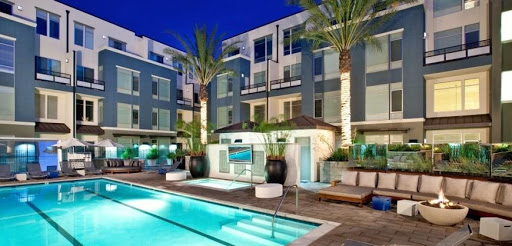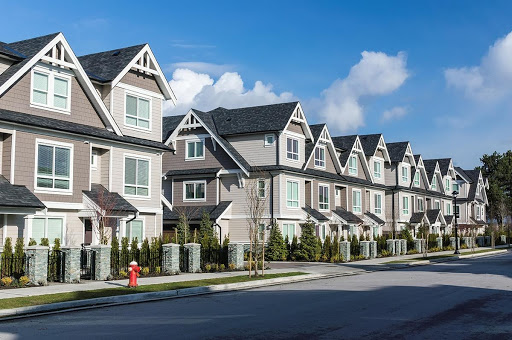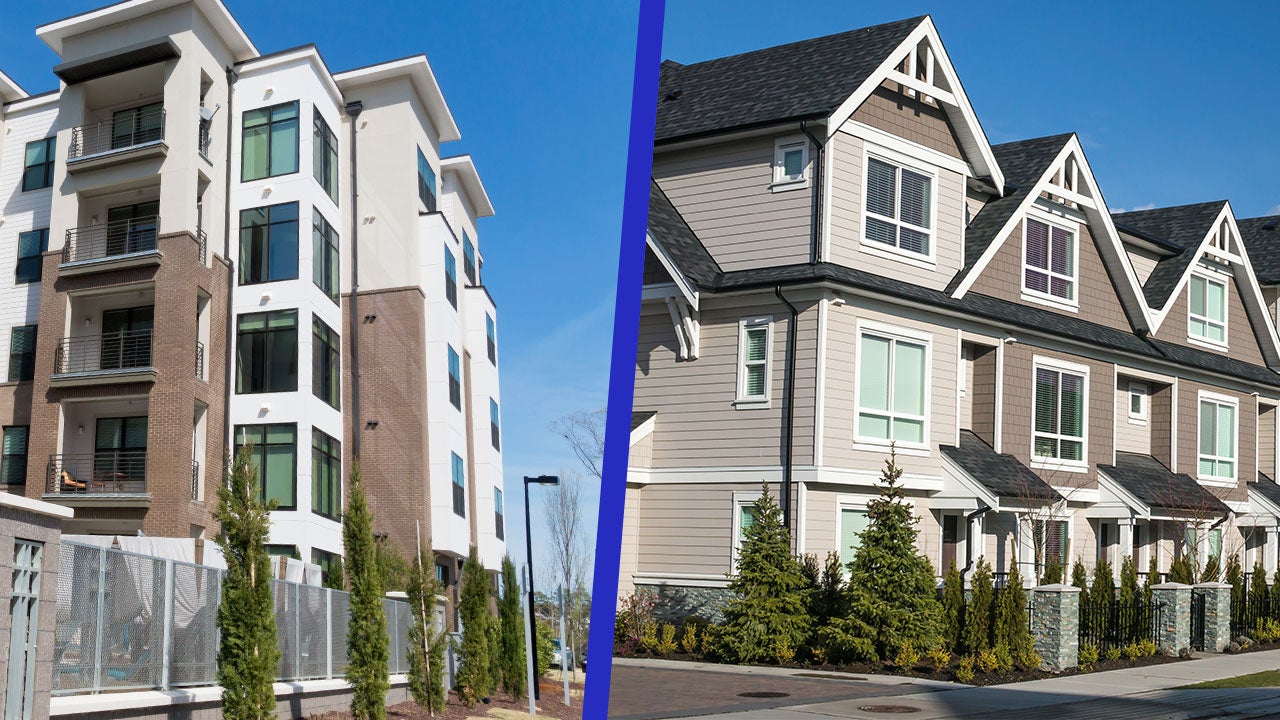Many homeowners find it difficult to tell the difference (economically speaking) between townhomes and condos. A condo is distinct from a townhouse on closer scrutiny in terms of structure and amenities, though they have some striking similarities. As TheHousePlanS
Homebuyers have shifted their attention to the community style of housing, which both the condos and townhouses provide because traditional housing, i.e., detached houses with a yard, are no longer an option, due to their high costs or scarcity.
However, the advantage of either house over the other is not very remarkable as these houses represent different lifestyles, the ability to use shared resources and willingness to take up and manage responsibility. So, it is vital to understand the nitty-gritty of each house.
Table of Contents
Townhouse vs. Condo
From afar, you cannot tell the difference between condo and townhouse, especially if you are a first time home buyer. Typically, the principal difference between the two houses is the ownership plan. The difference is in terms of:
- What you own
- What you are responsible for maintaining
- Living space to share
Let’s get the facts about what a condo townhouse is.
Condominium
Condominiums are units within a larger building, which usually are on one level, forming a community. The units vary in style/shape and sizes. They share a wall with adjacent units, and they may be individual houses or high-rises.

For condos, residents own the interior of the units, and therefore, they maintain it. However, they do not own the property on which the house sits. The lawn, the exterior, and the shared pieces are maintained by the Homeowners Association (HOA).
Since there are numerous units per building, condominiums have numerous residents per building. As a result, they have amenities such as gyms, libraries, pools, clubhouses, etc. These amenities make the HOA fees higher for condos than for townhouses; still, HOA provides services like lawn care and pest control, which contributes to higher condo HOA charges.
In any case, if you want to buy a house, learn more here
Does a condo fit your lifestyle?
People who do not mind living with numerous people shouldn’t mind getting a condo. Condos offer living space on a single floor, which may make movement easier within the house. There aren’t stairs.
If you are renting a condo, the owner may renovate it to give it new features. So it comes with modern features because the landlord takes upon himself to ensure that the building has the latest touch. Nevertheless, a condo option is the best for people who want to own real estate at a reasonable price and close to places where they work or play.
Above all, a condo is excellent for first time home buyers who want convenience but aren’t ready for the responsibilities of homeownership.
Townhouse
Townhouses closely resemble traditional houses; they are multilevel, and they have both the front and the back yards. However, they differ from traditional homes because they are not detached properties. Rather, they are part of houses in a row attached through one or two walls.

Unlike condos, you own the interior and exterior of a townhouse and the property it sits on; this directly puts you in charge of maintenance of all aspects of the home.
Nonetheless, townhouses are often part of large communities, which have their own homeowners association. The association is not responsible for maintaining individual dwellings. Instead, they are in charge of the preservation of the community as a whole. Therefore, it charges townhouse owners the HOA fee for some tasks like trash removal. Also, they have guidelines to protect the neighborhood.
But, do townhouses have condo fees? Both houses have HOA fees, but the fee charged for condos are usually in excess of that which is charged for townhomes because condo owners pay for upkeep their home’s exterior, such as lawn care, trash removal, and pest control, which doesn’t apply to townhouses. Townhouse owners pay lower HOA fees as they pay for numerous of their upkeep. However, HOA still handles specific maintenance and trash removal.
Who should buy a townhouse?
Townhouses are an excellent option for people who are looking to balance affordability and privacy. Typically, the houses have the benefits of homes housing single families, alongside the benefits of community living. Growing families that need outdoor space and a safe environment within a community-like setup will ultimately find townhouses handy.
A notable difference between condo and townhouse is, the townhouse is more spacious than a condo, considering it comes with multiple floors. If you do not have problems using the stairs, then you can choose the townhouse. Additionally, you have the advantage of having a yard or a garden. In some cases, there is a small garage.
But, townhouses are rare in big cities, and therefore, more expensive. In addition, buying a townhouse means you’ll have to incur costs associated with maintenance (and repair cost) – both interior and exterior. That is why townhouses are meant for people who are ready to take up responsibilities.
So condo or townhouse, which one do you prefer? With this information, first-time buyers can make an informed decision about the house they need. However, your choices trickle down to your priorities – affordability, privacy, and convenience.
Townhouse vs. condo resale value
Having a deeper understanding of what a condo townhouse is, is vital in not only making the right choice but understanding what to expect in the future. Consequently, whether you chose to buy a condo or townhouse, it is good to know if it will hold its price when it is time to sell. The resale value of a home depends on the prevailing market conditions and the condition of the house at the time of sale. Naturally, newer and updated spaces command more prices than outdated ones. This applies to both condos and townhouses.
In cases of a condo, you are responsible for maintaining your unit only, as opposed to a townhouse where you’ll be responsible for the whole unit, including the area around the house. A condo has a challenge; the state of the entire building affects the price. Even if the unit you want to sell is well maintained, but the state of the building is wanting, buyers will be turned away.
















